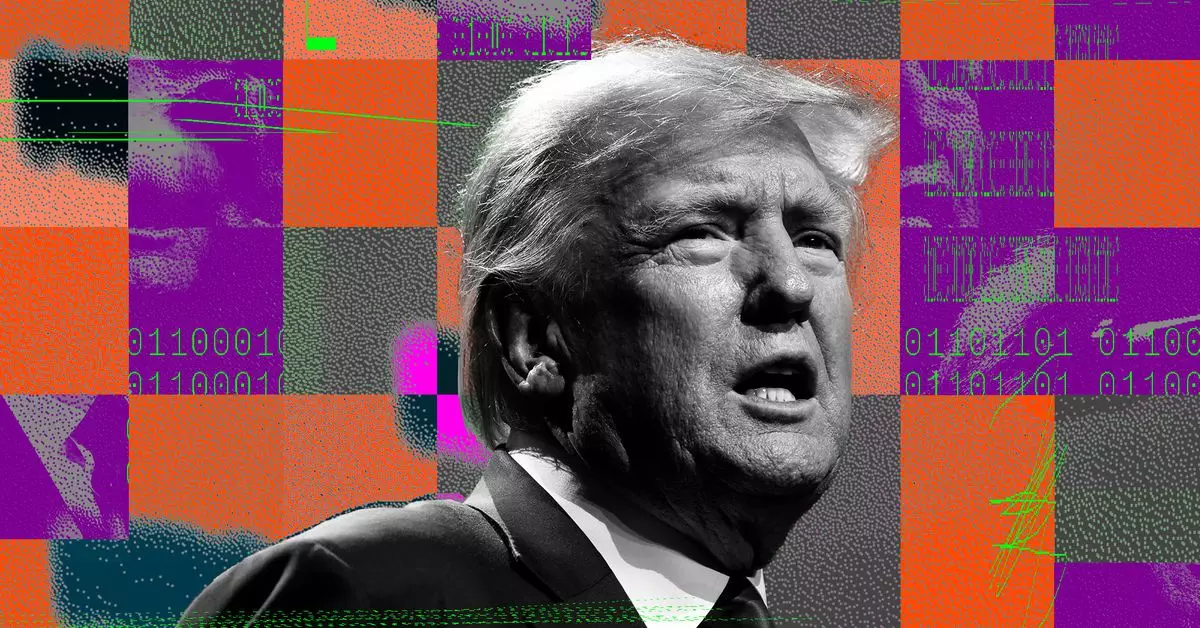Recent developments in the nexus between cyber threats and political campaigns have raised alarms, especially following the U.S. Department of Justice’s indictment of three Iranian nationals. These individuals, allegedly linked to Iran’s Islamic Revolutionary Guard Corps (IRGC), are charged with executing a sophisticated cyberattack against Donald Trump’s presidential campaign. This incident reflects a broader concern regarding the vulnerability of democratic institutions to foreign interference, as well as the lengths to which certain actors will go to manipulate political outcomes.
The tactics employed by these hackers demonstrate an alarming proficiency in cyber operations. Using methods such as social engineering and spear phishing, they deceived campaign officials into divulging sensitive information. This approach often involves impersonating trusted contacts, making it imperative for individuals to verify communications rigorously. Notably, these hackers didn’t just access data indiscriminately; they utilized the stolen accounts to obtain nonpublic campaign documents, which they subsequently shared with the media. Their innovative use of a commercial VPN to create deceptive domains, such as “tinyurl.ink” and “mailer-daemon.online”, further exemplifies their ability to mask their activities while conducting espionage.
The indictment highlights critical links to an Iranian internet service provider, Respina Networks, which allegedly facilitated unrestricted internet access for the hackers. This aspect of the case underscores the growing concerns about state-sponsored cyber operations, where nation-states utilize their technological groundwork to bolster offensive cyber capacities. By providing such infrastructure, the Iranian government may be implicitly endorsing actions that challenge the integrity of political processes in other nations, especially those it perceives as adversarial.
Mainstream and Independent Media Responses
While major news outlets receiving the leaked documents chose not to publish them, independent journalists like Ken Klippenstein have attempted to bring the conversation to the forefront, albeit at a personal cost. Klippenstein reportedly shared details regarding vice presidential candidate JD Vance and faced suspension from social media platform X. This instance illustrates the fine line independent journalists walk when tackling sensitive political subjects, particularly when dealing with materials obtained through dubious means.
The charges against the hackers—ranging from wire fraud to conspiracy—reflect a strategic response to what Assistant Attorney General Matthew G. Olsen described as a “direct assault on the integrity of our democratic processes.” In a political climate where misinformation can spread rapidly, the ramifications of such cyberattacks could be profound. They not only jeopardize specific campaigns but also erode public trust in electoral mechanisms and the media’s role in informing the electorate.
As the U.S. Treasury Department offers a substantial reward for information leading to the apprehension of the suspects, it serves as a reminder of the persistent threat posed by cyber actors. The intersection of technology and politics necessitates a robust response to safeguard democratic institutions. Enhanced scrutiny of digital communications, a focus on cybersecurity education, and policy reforms are urgently needed to fortify defenses against future incursions. In an era where elections are increasingly conducted online, the integrity of these processes is paramount, and vigilance remains crucial to protecting them from foreign interference.


Leave a Reply